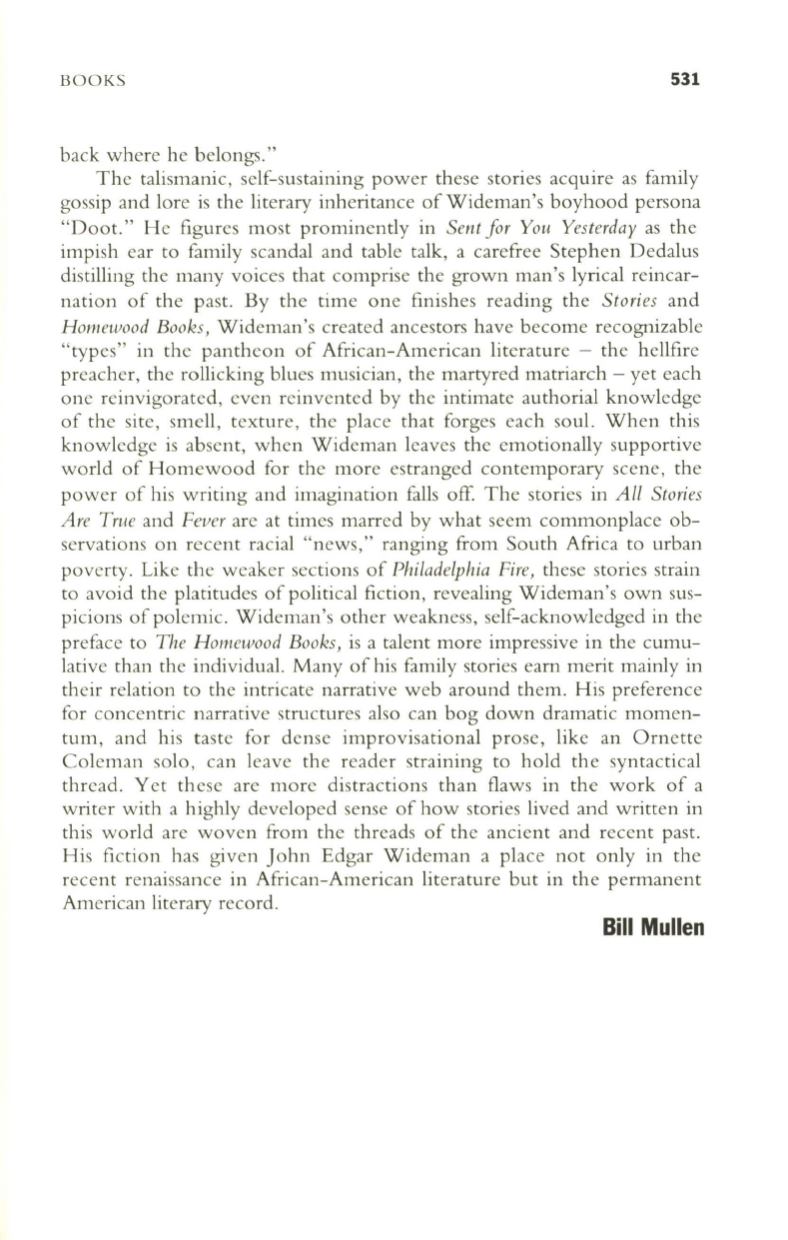
BOOKS
531
back where he belongs."
The talismanic, self-sustaining power these stories acquire as family
gossip and lore is the literary inheritance of Wideman's boyhood persona
"Doot." He figures most prominently in
Sent Jor You Yesterday
as the
impish ear to family scandal and table talk, a carefree Stephen Dedalus
distilling the many voices that comprise the grown man's lyrical reincar–
nation of the past. By the time one finishes reading the
Stories
and
Homewood Books,
Wideman's created ancestors have become recognizable
"types" in the pantheon of African-American literature - the hellfire
preacher, the rollicking blues musician, the martyred matriarch - yet each
one reinvigorated, even reinvented by the intimate authorial knowledge
of the site, smell, texture, the place that forges each soul. When this
knowledge is absent, when Wideman leaves the emotionally supportive
world of Homewood for the more estranged contemporary scene, the
power of his writing and imagination falls off The stories in
All Stories
Are True
and
Fever
are at times marred by what seem commonplace ob–
servations on recent racial "news," ranging from South Africa to urban
poverty. Like the weaker sections of
Philadelphia Fire,
these stories strain
to avoid the platitudes of political fiction, revealing Wideman's own sus–
picions of polemic. Wideman's other weakness, self-acknowledged in the
preface to
The Homewood Books,
is a talent more impressive in the cumu–
lative than the individual. Many of his family stories earn merit mainly in
their relation to the intricate narrative web around them. His preference
for concentric narrative structures also can bog down dramatic momen–
tum, and his taste for dense improvisational prose, like an Ornette
Coleman solo, can leave the reader straining to hold the syntactical
thread. Yet these are more distractions than flaws in the work of a
writer with a highly developed sense of how stories lived and written in
this world are woven from the threads of the ancient and recent past.
His fiction has given John Edgar Wideman a place not only in the
recent renaissance in African-American literature but in the permanent
American literary record.
Bill Mullen


